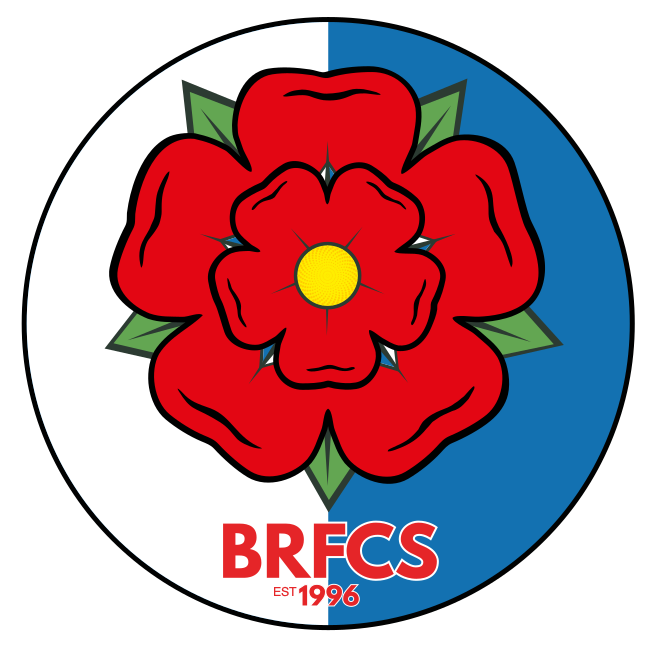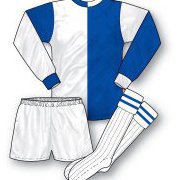All Activity
- Past hour
-

Valérien Ismaël: Blackburn Rovers Head Coach
SIMON GARNERS 194 replied to DE.'s topic in Blackburn Rovers Fans Messageboard
Ismeal is their man,happy to take the Venky Rupee do their bidding,will not rock the Boat...Perfect. The Snake,the Ego and a piss poor Manager at the Ewood Wheel...an utter recipe for disaster. -
v Sheffield United (h) - 21/10/25
AvRover replied to Herbie6590's topic in Blackburn Rovers Fans Messageboard
Exactly this, we need proper organisation and eloquent speakers to get the message out: • The club has been systematically mismanaged • This has gone on too long (15 years) • This cannot go on • We will not subsidise the owners any more. -
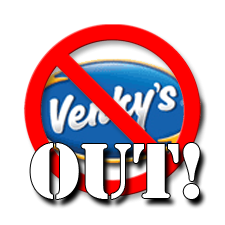
v Sheffield United (h) - 21/10/25
booth replied to Herbie6590's topic in Blackburn Rovers Fans Messageboard
So they've assembled a reserve team to compete in the Championship. They've certainly reserved the biggest insult for our 150th year. -
Valérien Ismaël: Blackburn Rovers Head Coach
joey_big_nose replied to DE.'s topic in Blackburn Rovers Fans Messageboard
I think what has been said is - Pasha brought in Broughton who then brought in JDT - When that went off the rails Waggott stepped in and brought in Eustace - Pasha reasserted his authority and brought in Gestede, forced out Waggott, and brought in Ismael. Might be wrong, but that's the way I understand it. -
Valérien Ismaël: Blackburn Rovers Head Coach
Jimmy612 replied to DE.'s topic in Blackburn Rovers Fans Messageboard
That really was an extraordinary time. The Mowbray situation was atrociously managed and very disrespectful to a manager who actually served them very well. Okay, maybe his time was up, arguments for and against etc, but he deserved far more than just pure ignorance. But moreover, I cannot for the life of me work out who within the Rovers/Rao hierarchy decided to pursue a Sporting Director model and found Greg Broughton. It certainly wouldn't have been on the advice of Waggott, Pasha or Mowbray. Are we meant to believe that Madam dreamt up the idea, or did they seek independent advice? i'd love to know how that very brief chapter in the clubs history came about. -

V Southampton (H) - 25/10/25
SIMON GARNERS 194 replied to Elrovers's topic in Blackburn Rovers Fans Messageboard
Cant fookin wait. -
Valérien Ismaël: Blackburn Rovers Head Coach
joey_big_nose replied to DE.'s topic in Blackburn Rovers Fans Messageboard
Tbh I'm pretty comfortable we have found our best shape. The 352 suits us. What worries me is we can't finish chances, give away soft goals that have nothing to do with shape (just basic marking/closing down), after an hour we run out of steam with nothing on the bench to sustain us, and once we are behind we give up. None of that is tactical really. The way Ismael treats the players seems very demotivating, we have lost all the experienced players who could lead on the pitch, and recruitment in attacking positions seems poor. -
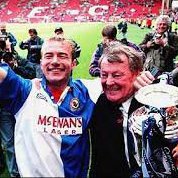
V Southampton (H) - 25/10/25
Mattyblue replied to Elrovers's topic in Blackburn Rovers Fans Messageboard
There will be ‘Venky’s don’t care about me’ and ‘Ishmael sort it out’ chants and some boos… we then traipse home. -
v Sheffield United (h) - 21/10/25
B16Rover replied to Herbie6590's topic in Blackburn Rovers Fans Messageboard
What do we want Venkys out When do we want it After 25,000 of us have paid them £30 to shout this -
V Southampton (H) - 25/10/25
Devon Rover replied to Elrovers's topic in Blackburn Rovers Fans Messageboard
I can't see a win, either. Here or for the foreseeable future. But i also can't see any toxic reaction coming. The time for that is several years past, with little if any impact from those sporadic occasions during Venkys time here. I think most fans have given up fighting/wasting effort/money/hoping. I had planned to travel up for this one but I simply dont see the point in terms of the game, the 'product', or the ability of the fanbase to influence the future of the club. Negative, i know, but what at the Rovers is leading towards anything different? 3-1 to Saints and Rovers propping up the league. Ismael praises the performance. -
Valérien Ismaël: Blackburn Rovers Head Coach
Jimmy612 replied to DE.'s topic in Blackburn Rovers Fans Messageboard
The only 'logical' justification for offering VI a 3.5 year contract, is that the board view managers the same as players; taking cheap-ish punts on unknowns (or in this case, those with a tarnished record), with the anticipation of them performing well and getting interest from other clubs. It did actually work quite well with Eustace, not taking in to account it was a very messy affair and probably earlier than they had anticipated. Problem with the above being, when said manager underperforms, it becomes a sticky wicket, and could become costly. I remember @glen9mullan saying in March/April time that he thought there was a 3 or maybe 6 month severance option in his contract, where Rovers could effectively sack him with little or no compo due. If they had any sense (I know), they might have inserted clause(s) which, after, say 12 months he's only due a proportionate amount. In my opinion this is purely academic. I honestly think Rudy is heavily invested in this 'project', and genuinely thinks we'll turn this around. Whether Pasha is as aligned, probably no-one knows, but he won't be wanting to report back to the family that 1. their choice of manager has failed, and 2. it's gonna cost them. -
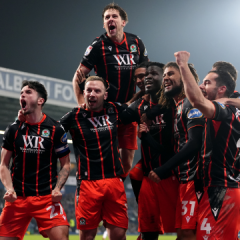
v Sheffield United (h) - 21/10/25
... replied to Herbie6590's topic in Blackburn Rovers Fans Messageboard
Not gonna happen have ypu sat up in jack walker barely anyone up there chants. There's a cluster of us that try and it quickly diminishes. -
I don’t see us winning this one again, unfortunately. Will get really toxic if we can’t get a result…
-

v Sheffield United (h) - 21/10/25
SIMON GARNERS 194 replied to Herbie6590's topic in Blackburn Rovers Fans Messageboard
Does anyone enjoy going to Ewood anymore? The football is poor,there is more atmosphere on the Moon and we all know behind the scenes the Club is a shambles...150th and all that. ☠️ -
150th Anniversary kit/celebrations
rigger replied to Proudtobeblue&white's topic in Blackburn Rovers Fans Messageboard
Perhaps we could join the anniversary celebration, with the funeral ceremony at Bamber Bridge. -
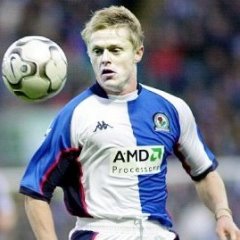
Venky’s (& Suhail) Out Protest Ideas
DuffsLeftPeg replied to DuffsLeftPeg's topic in Blackburn Rovers Fans Messageboard
Great idea 💡 If everyone got on board with this and printed out 5-10 cards each for their mates and people around them, it would get some traction. Doing something is better than nothing -
I bet Sheff Wed can't wait for December to come round.
-

Valérien Ismaël: Blackburn Rovers Head Coach
Mattyblue replied to DE.'s topic in Blackburn Rovers Fans Messageboard
Of course, Mowbray just wandered off at the end of his deal no idea if he was staying or going, which was very respectful by the ‘honourable people’. -
He has a place in my heart 🤣 Ex-Rover (only 3 years 1903-06) who played a significant role in pushing football to higher standards as a manager in Europe, and further tying Bilbao and Atl’ Madrid to Rovers folklore. Taken from Bilbao’s website (admittedly no mention of Rovers, but he is nevertheless an ex-Rover who went on to do a lot of good for the game). On March 25, 1923, Englishman Frederick Beaconsfield Pentland, known to most Athleticzales as Mister Pentland, took charge of his first official match as Athletic Club manager, leading the Lions to a 1-3 win over Real Madrid in the Copa quarter-finals. The Zurigorri would go on to win that year’s edition of the tournament, defeating CE Europa 1-0 in the final. During two spells at the club (1922/23-1924/25 and 1929/30-1932/33), Mr Pentland became the most decorated coach in Athletic history, lifting two LaLiga titles (1929/30, 1930/31), five Copas del Rey (1922/23, 1929/30, 1930/31, 1931/32, 1932/33) and five Regional Championships (1922/23, 1923/24, 1930/31, 1931/32, 1932/33). But it was not just the silverware that turned Fred Pentland into an Athletic legend. He ushered in professional standards, changed training habits and introduced tactics based on intensity, possession and wing-play that have since become synonymous with Athletic Club. What’s more, Pentland did all of this with character and personality, his cigars, bowler hat, sense of humour and humanity ensuring that even a century later he remains a revered figure in Bilbao. Born in Wolverhampton in July 1883, Pentland came up through the ranks at Small Heath (now known as Birmingham City FC), before embarking upon a modest career as an outside-right which saw him play for a range of top English clubs, including Blackpool, Blackburn Rovers, Brentford, QPR, Middlesborough, Halifax and Stoke. His most successful period as a player came at Middlesborough, where he earned five England international caps, all of them coming in 1909. After hanging up his boots in 1914, Pentland quickly moved into management. Clubs and federations all over Europe were keen to hire former professional British players, believing their expertise could improve standards. At the same time, Pentland and many ex-players felt English football had become too set in its ways and saw the burgeoning game in Europe as the perfect place to experiment with tactics and training methods. In 1914, he travelled to Berlin to lead the German national team at their 1916 home Olympics. However, within months of his arrival, the First World War broke out and Pentland was interned along with almost 5,000 others at Ruhleben, a civilian detention camp set up at a former horseracing track outside Berlin. Pentland’s four years in the camp had a massive impact on his approach to football and, more importantly, his approach to people. During his imprisonment, he helped set up a football league with fellow detainees, becoming chairman of the Ruhleben Football Association and penning articles on the sport for the camp’s internal magazine. “Only those who’ve been incarcerated in a concentration camp can understand the joy playing sports can bring,” Pentland wrote in the introduction to a book he penned on football tactics while at Ruhleben. He was one of several professional footballers at Ruhleben, most of whom would go on to become managers. Curiously, one other also went on to coach a Basque team. Steve Bloomer, a former Middlesborough teammate of Pentland, was the Real Unión manager from 1923-1925, taking the “Txuri-beltz” to Copa glory in 1924. Once the war ended and Ruhleben’s detainees were released, Fred Pentland returned to England. But it was not long before Europe called again. In 1919, he became player-coach at AS Strasbourg and he led the French national team at the 1920 Olympic Games. In 1921, he joined Racing Santander, but a season later Los Rojiblancos convinced him to move to Bilbao. Pentland revolutionised the way football was played at Athletic. He always maintained that he had no defined tactic and would set-up according to the match. However, he often ditched the 2-3-5 formation which dominated European football at the time, instead opting for a 2-5-3 set-up as he wished to dominate the midfield and create overloads on the flanks. Furthermore, he instructed players to keep the ball on the floor and pass to feet, rejecting the “kick long and rush” style of the time. But most important of all, Pentland emphasised the team over the individual, while still maintaining an environment where talented players could flourish. He also introduced changes off the field, encouraging Athletic to give players professional contracts, organising structured weekly training sessions, teaching players how to properly take care of their feet, and even showing them a new way to tie boot laces in order to prevent injuries. “Get the simple things right and the rest will follow,” the Englishman would often tell his charges. Pentland made his unofficial Athletic debut, the Lions beating Real Sociedad 1-3 in a friendly at El Malecón, in Torrelavega, Cantabria on August 13, 1922 as part of the stadium’s inauguration. His first match at San Mames was a 2-4 defeat against Austrian side Greuther Furth and his first win at The Cathedral was a 6-0 victory over SD Erandio. The Englishman’s first official match at the helm came in Copa quarter-final against Real Madrid on March 25, 1923. Athletic won 1-3 in Madrid and 5-0 in Bilbao. In the semi-finals Athletic faced Real Sociedad, drawing 0-0 first leg in Donostia and winning 2-0 at San Mames. Pentland won his first trophy with a hard-fought 1-0 victory over CE Europa at Les Corts. “My team has won and it’s only logical that we’re happy. It wasn’t a pretty match, but that natural when it comes to a final,” Pentland said after the final. At the end of his third season in Bilbao, Pentland left for Athletic Madrid (as Atletico Madrid were known back then) after being unable to reach an agreement to carry on at Athletic Club. He was in Madrid for one year and then Real Oviedo for a season before returning to Athletic Madrid for another two years. In 1929, Pentland came back to Athletic, kickstarting a golden age for the Club which included two LaLiga-Copa doubles (the first team in Spanish football to achieve the feat) and four consecutive Copa triumphs. Los Rojiblancos lifted their first ever LaLiga title in the 1929/30 campaign, managing to go the entire season unbeaten with 12 victories, six draws from 18 matches. In the Copa, Athletic beat Real Madrid 3-2 in the final. The Lions won another double the following season, this time defeating Real Betis 3-1 in the Copa final. Fred’s eccentricity and sense of humour were also on show during this match. With full-time approaching, Pentland took off his famous bowler hat and said “¡Que poco te queda bombín. Sólo tres minutos!” (Only three minutes left for you, bowler hat!). By this point, the Athletic players had established a tradition, which began in the manager’s first spell at the club, of taking Pentland’s famous hat and stamping it into the ground after winning important matches. It was also the season in which Athletic registered a club record victory which still stands to this day, a 12-1 win over FC Barcelona at San Mames. What’s more in the same campaign, Los Leones defeated Real Madrid 0-6 at Charmartin, to this day Los Blancos’ heaviest home defeat. Mr Pentland led the Zurigorri to two more Copa wins under his tenure, a 1-0 victory against Barça in 1932/33 and 2-1 win over Real Madrid in 1932/33. The Englishman left Athletic for good in 1933, going back to Atletico Madrid. Pentland said he had become too good a friend to his players, making his coaching less effective. When the Spanish Civil War broke out, Fred Pentland returned to England and managed Barrow AFC before retiring fully. But Athletic was never far from his heart and love for Mr Pentland in Bilbao stayed strong. In 1958, he attended a friendly between West Bromwich Albion and Los Leones at The Hawthorns. Then in 1959, he was invited back to San Mames for a testimonial match in his honour, with Athletic facing Chelsea and Pentland taking a ceremonial kick-off. It is alleged that after striking the ball, Fred turned to the Athletic board members in the centre circle and said: “Now, I can die in peace.” The legendary manager passed away three years later in 1962. Pentland’s death led to an outpouring of grief in Bilbao and Athletic organised a special memorial service at San Mames for him. Frederick Pentland’s legacy at Athletic Club lives on strong to this day. When a group of Athleticzales in London decided to set up an official fan club, for them it felt natural to take his name and become Mr Pentland Club. Pentlanders stand out on their visits to Bilbao as they come to San Mames wearing bowler hats in his style. In 2010, Pentland’s daughter, Angela, visited The Cathedral, receiving a standing ovation while she took a ceremionial kick-off in a LaLiga match against FC Barcelona as part of the celebrations around the 80th anniversary of Athletic’s first Liga-Copa double.
-
Music Association Game
oldjamfan1 replied to adopted scouser's topic in I Can't Believe It's Not Football
The English Beat - Save It For Later -
v Sheffield United (h) - 21/10/25
M_B replied to Herbie6590's topic in Blackburn Rovers Fans Messageboard
He was the link in virtually every good move we put together including the goal, just why he took him off I've no idea, we certainly went backwards after he did. I honestly don't know which match you were both watching.
